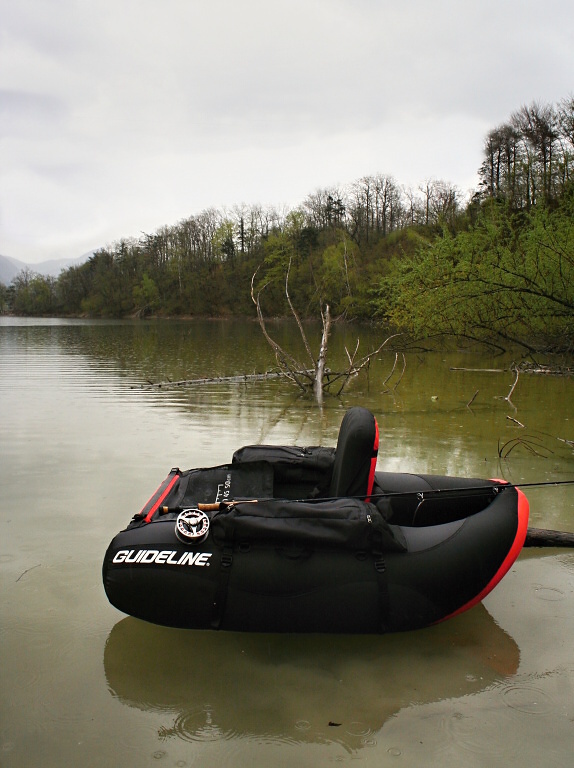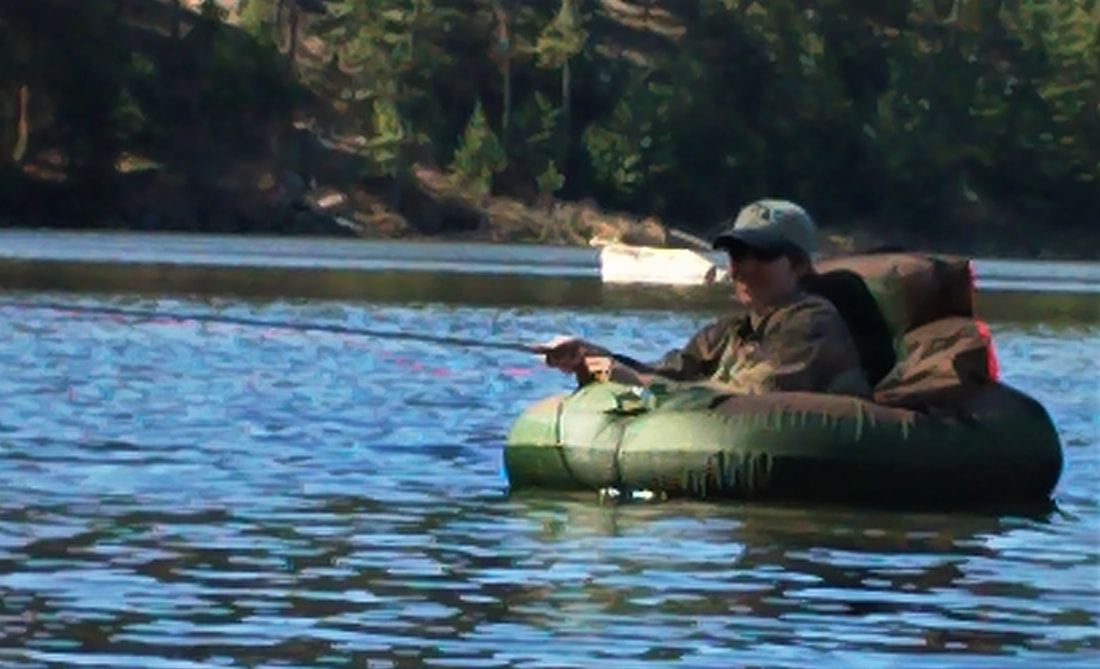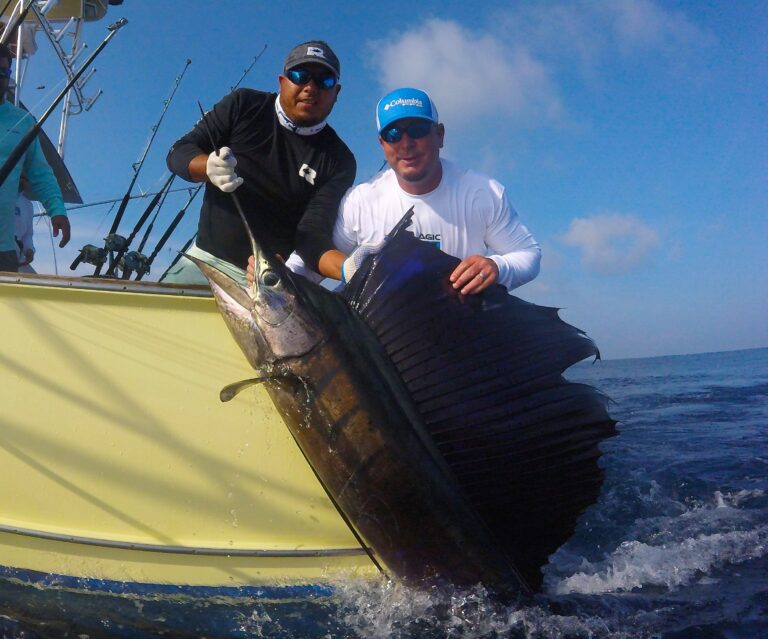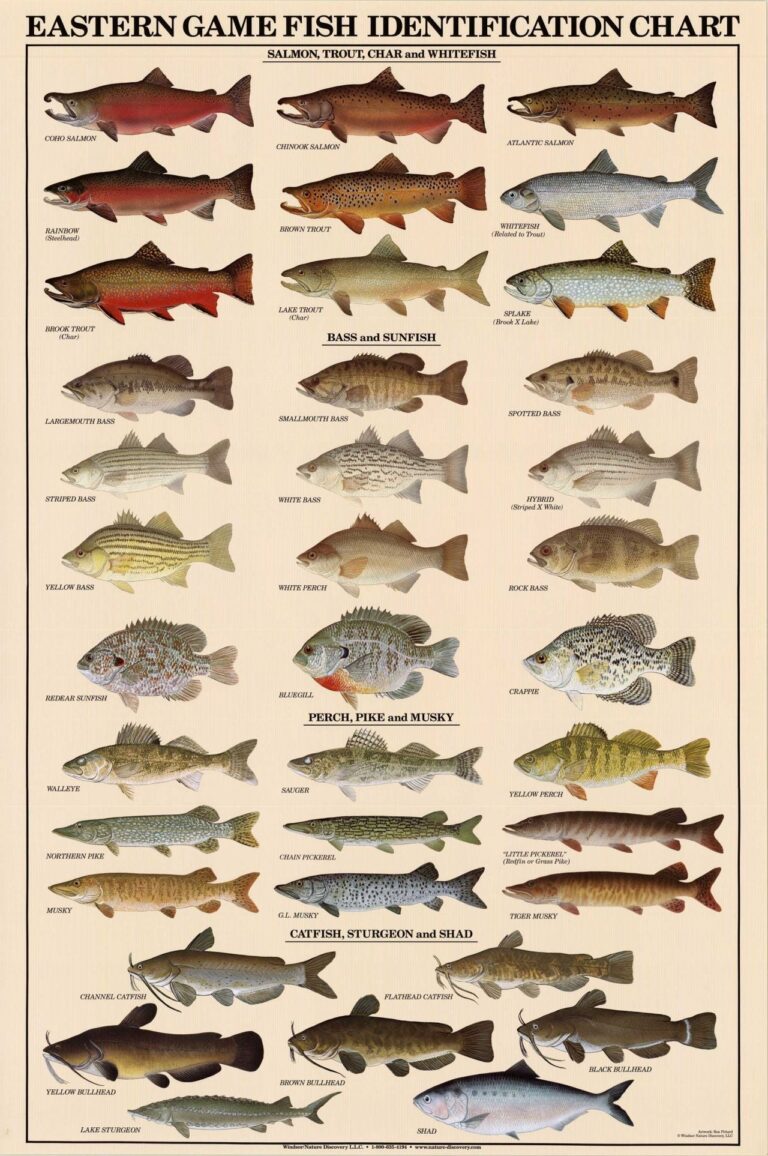Small Waters Are Great for Belly Boat Fly Fishing: Ultimate Guide
Fly fishing in small waters offers unique and exciting experiences. Belly boat fly fishing takes this to another level.
Imagine floating quietly on a calm pond or stream, casting your line and waiting for a bite. Small waters are ideal for belly boat fly fishing. They provide a serene environment, perfect for this style of fishing. The intimacy of small waters allows you to connect deeply with nature.
You can reach spots that are inaccessible from the shore. It’s peaceful, immersive, and rewarding. Whether you’re a seasoned angler or a beginner, belly boat fly fishing in small waters can offer a memorable adventure. Read on to discover why small waters are perfect for your next belly boat fly fishing trip.

Credit: www.czechnymph.com
Choosing The Right Belly Boat
Choosing the right belly boat can enhance your fly fishing experience on small waters. With the perfect boat, you can navigate tight spots and cast your line with ease. Let’s dive into the key aspects of selecting the ideal belly boat for your adventures.
Types Of Belly Boats
There are mainly two types of belly boats. The first type is the round boat. It is shaped like a donut. This type is stable but slow. The second type is the pontoon boat. It has two air-filled tubes. This type is faster and more maneuverable.
Key Features To Look For
When choosing a belly boat, consider its weight. Lighter boats are easier to carry. Also, think about the material. Durable materials last longer. Look for boats with comfortable seats. You will spend hours sitting. Ensure the boat has enough storage. You need space for your gear. Lastly, check the inflation system. Quick inflation saves time.
Essential Gear And Equipment
Fly fishing with a belly boat on small waters can be an exhilarating experience. The right gear and equipment are essential to make the most of your adventure. Below, we cover the fundamental tools you’ll need.
Fly Rods And Reels
Choosing the right fly rod is crucial. A 5 to 6 weight rod is ideal for small waters. It offers the perfect balance between power and finesse.
Your fly reel should match the weight of your rod. Look for one with a good drag system. This will help you manage those unexpected big catches.
Waders And Boots
Waders keep you dry and comfortable. Choose breathable waders for warm weather. For colder conditions, insulated waders are best.
Wading boots provide traction and support. Felt soles are good for slippery rocks. Rubber soles are better for muddy areas.
| Equipment | Recommendation |
|---|---|
| Fly Rod | 5 to 6 weight |
| Fly Reel | Match rod weight, good drag |
| Waders | Breathable or insulated |
| Wading Boots | Felt or rubber soles |
Selecting The Best Flies
Belly boat fly fishing in small waters is a unique experience. The right flies can make all the difference. Selecting the best flies increases your chances of catching fish. Understanding the environment and the fish’s diet is key.
Matching The Hatch
Match the hatch to increase your success in small waters. Observe the insects around you. These insects are what fish are eating. Choose flies that mimic these insects. This approach attracts more fish to your fly.
Top Flies For Small Waters
Some flies work better in small waters. Dry flies are a great choice. They float on the water surface. Fish often come up to eat them. Nymphs are also effective. They imitate underwater insects. Streamers can work well too. They mimic small fish or leeches. Each type has its own charm and effectiveness.

Credit: www.nor-vise.com
Techniques For Belly Boat Fly Fishing
Belly boat fly fishing offers a unique experience on small waters. It allows anglers to access spots unreachable from the shore. Learning the right techniques ensures a successful and enjoyable outing. Let’s explore some essential techniques for belly boat fly fishing.
Casting From A Belly Boat
Casting from a belly boat differs from casting on land. The boat sits low in the water, so adjust your casting technique. Use a sidearm or low backcast to avoid water drag. Practice short, accurate casts. They are effective in small waters.
Keep your movements smooth and steady. Quick or jerky movements can spook fish. Maintain a relaxed grip on the rod. This helps in better control and precision. Aim for targets like submerged rocks or weed beds where fish might hide.
Retrieving Your Fly
Retrieving your fly is crucial in belly boat fly fishing. Vary your retrieve speed. Slow retrieves mimic injured prey, attracting fish. Fast retrieves can trigger aggressive strikes. Experiment to see what works best.
Use both hand-twist and strip retrieves. Hand-twist retrieves create subtle movements. Strip retrieves offer more action. Combine both techniques for a natural presentation. Pay attention to the water surface. Ripples or swirls might indicate fish activity.
Stay alert and ready to set the hook. Fish can strike at any moment. A quick and firm hook set ensures you don’t miss out. Enjoy the thrill of belly boat fly fishing on small waters.
Best Locations For Small Water Fishing
Small waters offer a unique charm for belly boat fly fishing. The calm and often secluded environments make them perfect for a peaceful fishing experience. This section will guide you through some of the best locations for small water fishing.
Local Ponds And Lakes
Local ponds and lakes are easily accessible. They often have abundant fish populations and are perfect for beginners. Many urban areas have ponds stocked with fish. These spots are great for a quick fishing trip.
Some advantages of fishing in local ponds and lakes include:
- Close proximity to home
- Easy access and parking
- Stocked with a variety of fish species
For example, city parks often have ponds with bass, bluegill, and trout. These fish are perfect for practicing fly fishing techniques.
Remote Streams And Creeks
Remote streams and creeks offer a more adventurous experience. They are often found in forests or mountainous areas. These locations provide a serene and natural environment.
Fishing in remote streams and creeks has its own set of benefits:
- Less crowded
- Pristine water quality
- Opportunity to catch wild fish
Traveling to these remote areas can be rewarding. You can find hidden gems with crystal-clear waters and healthy fish populations. Small creeks often have trout and smallmouth bass, which are perfect for fly fishing.
Here is a quick comparison of local ponds and lakes versus remote streams and creeks:
| Feature | Local Ponds and Lakes | Remote Streams and Creeks |
|---|---|---|
| Access | Easy | Difficult |
| Fish Population | Stocked | Wild |
| Crowds | High | Low |
Both local ponds and remote streams have their unique charm. Choose the location based on your preference and experience level.
Safety Tips And Precautions
Belly boat fly fishing on small waters offers unique challenges. Safety is paramount. Understanding the environment and preparation is key. Here are some essential safety tips and precautions to keep you safe and ensure an enjoyable experience.
Navigating Small Waters
Small waters can be tricky. Watch for shallow areas and submerged obstacles. Move slowly and observe your surroundings. Use a depth finder to avoid hidden dangers. Always wear a life jacket. Safety comes first.
Weather Considerations
Weather changes quickly. Check the forecast before you go. Avoid fishing during storms or high winds. Lightning is a real danger. Overcast skies may bring rain, so carry a waterproof bag for essentials. Dress in layers to stay warm and dry. Stay alert to changing conditions. Better safe than sorry.
Caring For Your Belly Boat
Your belly boat is your trusty companion on small waters. Proper care ensures it stays in good condition for years. Regular cleaning and smart storage are key. Here’s how you can keep your belly boat in top shape.
Cleaning And Maintenance
Cleaning your belly boat after each use is essential. Saltwater, algae, and dirt can damage the material. Start by rinsing the boat with fresh water. Use a mild soap and a soft brush to scrub away any stubborn grime. Rinse again to remove soap residue.
- Rinse with fresh water.
- Use mild soap.
- Scrub with a soft brush.
- Rinse to remove soap.
Inspect the boat for any wear and tear. Look for leaks, punctures, or weak spots in the material. Small holes can be patched with a repair kit. It’s better to fix issues early to avoid bigger problems later.
- Check for leaks.
- Look for punctures.
- Patch small holes immediately.
Inflate your belly boat to its proper pressure. Over-inflation can cause stress on seams and valves. Under-inflation makes the boat less stable. Use a pump with a pressure gauge for accuracy.
- Inflate to proper pressure.
- Avoid over-inflation.
- Use a pump with a gauge.
Storage Tips
Storing your belly boat correctly extends its lifespan. Make sure it is completely dry before storing it. Moisture can cause mold and mildew. Leave it inflated for a few hours in a dry space to ensure all water has evaporated.
- Ensure it is completely dry.
- Leave it inflated in a dry space.
Deflate and fold the boat gently. Avoid sharp creases that can weaken the material. Store it in a cool, dry place away from direct sunlight. UV rays can degrade the fabric over time.
- Deflate gently.
- Avoid sharp creases.
- Store in a cool, dry place.
- Keep away from direct sunlight.
If possible, store the boat slightly inflated. This helps maintain its shape and reduces stress on folds and seams.
- Store slightly inflated if possible.
- Reduces stress on folds.

Credit: www.glangler.com
Frequently Asked Questions
What Is Belly Boat Fly Fishing?
Belly boat fly fishing is a method where anglers use inflatable boats. These boats allow fishing in small, hard-to-reach waters. They provide a stealthy approach to fish.
Why Choose Small Waters For Belly Boat Fishing?
Small waters are less crowded and more peaceful. They often have abundant fish populations. These waters are ideal for a more intimate fishing experience.
How To Stay Safe While Belly Boat Fishing?
Always wear a life jacket while belly boat fishing. Check weather conditions before heading out. Ensure your equipment is in good condition.
What Gear Is Needed For Belly Boat Fly Fishing?
You’ll need an inflatable belly boat and a quality fly rod. Also, bring a life jacket and waterproof gear. Don’t forget a tackle box with flies.
Conclusion
Small waters offer unique fly fishing experiences. Belly boats are perfect for these spots. They provide better access and stealth. Enjoy the peace and solitude. Catch more fish and improve your skills. Appreciate nature in a new way. Try belly boat fly fishing in small waters today.
You won’t regret it. Happy fishing!





